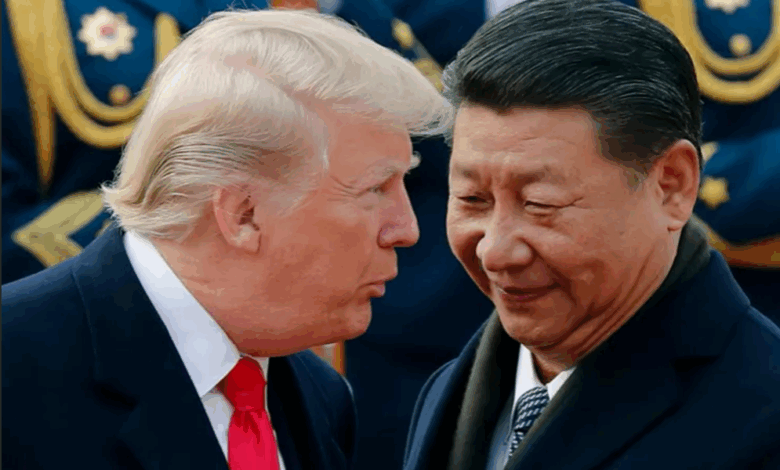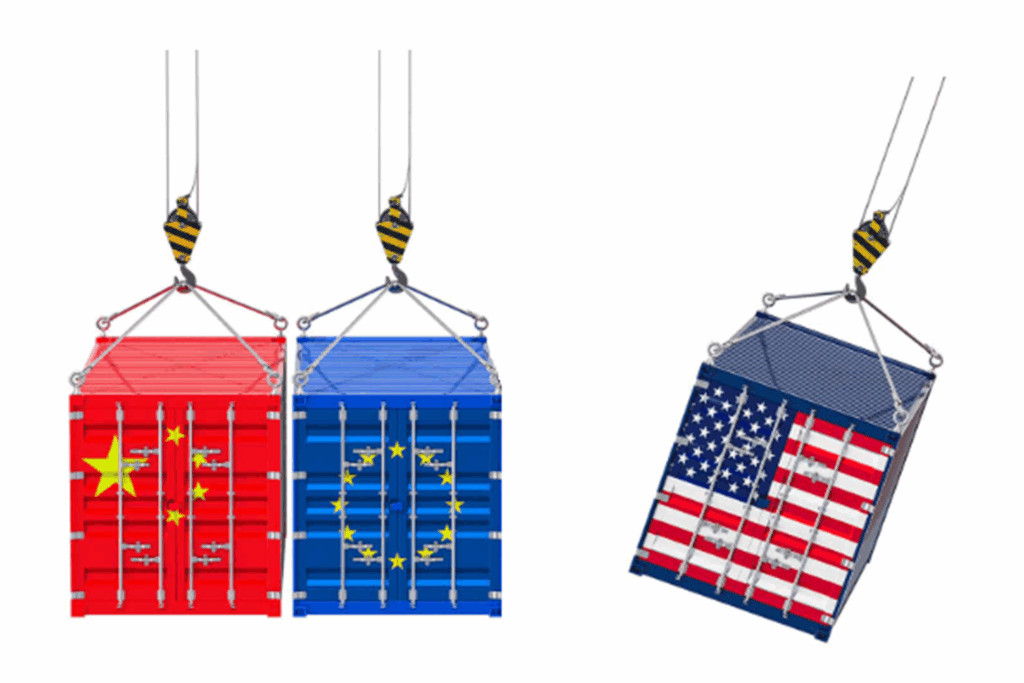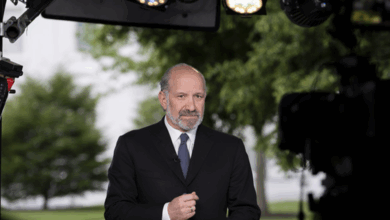The number of ‘tariff’ mentions surges past ‘AI’ on earnings calls as Trump’s trade fight alters outlook.

Move over, artificial intelligence. There’s a new popular topic on corporate earnings calls in 2025: tariffs. The word “tariffs” has cropped up on more than 350 earnings calls of S&P 500-listed companies reporting first-quarter results, according to a CNBC analysis of call transcripts compiled by AlphaSense. By contrast, the term “AI” has been mentioned in less than 200 conversations in the same period.
Mentions of tariffs have surged in recent weeks as President Donald Trump’s plan for hefty duties announced last month has placed both C-suites and Wall Street on high alert. That’s biting into time on conversations with analysts and investors that corporate management formerly used to discuss AI, which has been a watchword ever since the introduction of ChatGPT in late 2022.
The import taxes have aroused anxiety in part because of concerns that they might push up prices, curtail spending, and send the economy into a recession. More than 60% of CEOs in an April survey said that they expect some type of economic downturn in the next six months, and nearly three-fourths said tariffs would harm their business.
“We are entering uncharted territory as the trade tariffs start to have a more significant impact beginning in the second quarter,” said Christopher Clulow, director of investor relations at Cummins , earlier this week. “The breadth and changing nature of the tariffs have introduced a degree of uncertainty.”
Rising ‘uncertainty’
Cummins was one of many companies that said tariffs were muddying the ability to make accurate forecasts for future performance. Many firms said they were merely leaving financial outlooks unaltered given the evolving nature of the levies.

Others adjusted figures to reflect how current plans might affect business. That was due to the suspension of many of Trump’s reciprocal tariffs for three months, until early July, after the president introduced his original tariff policy on April 2.
Full-year earnings per share guidance unchanged. That was in spite of the company’s stronger business that executives said in other circumstances would have led them to raise their outlook.
“To be clear, tariffs will be a headwind for us this year,” Solventum CEO Bryan Hanson said on the company’s earnings call Thursday. “Without them, we would be raising our EPS guidance commensurate with the underlying momentum we’re seeing in the business.”
Part of the hesitation expressed by businesses centers on comprehending how the tariffs will affect consumers’ view of the economy. The University of Michigan’s consumer sentiment index in April fell to one of the lowest levels ever recorded since it began in the early 1950s.
Tariffs “have created significant uncertainty for small businesses, while concerns over escalating prices for imported goods have weighed on consumer confidence,” eBay CEO Jamie Iannone said during the online resale platform’s earnings call at the end of last month.
Some executives directed their criticism at Trump’s policy while speaking with analysts. “We support the U.S. government’s goals to increase domestic investment,” Eli Lilly CEO David Ricks said last week. “However, we don’t believe tariffs are the right mechanism.”




